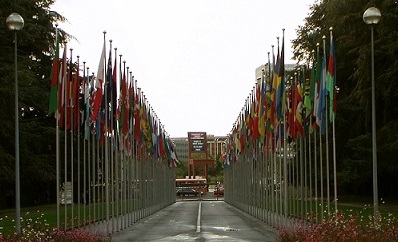This project has ended: Project duration 2013 - 2016
'Ethnicity as a Political Resource: Perspectives from Africa, Latin America, Asia, and Europe'
Wohile much research has been conducted on the formation of ethnicity in different regions, the question whether it is meaningful to speak of a unified single process has remained unresolved. This question has repercussions fr the conceptualisation of ethnicity in pre-modern Europe and in pre-colonial settings on other continents, as well as for our understanding of contemporary claims to indigeneity across the world.
Current research on ethnicity in Africa, Latin America, Asia, and Europe has revealed a variety of particularities and of discourses significant for each of these regions. For example, in the context of Latin America, there is widespread assumption that the European expansionists encountered ‘native inhabitants’ whose ethnic identity has persisted in its original form to this day. There, the representatives of indigenous movements and international non-governmental organisations use ethnicity as a resource to demand political rights. Scholarly contributions, however, have drawn attention to the continuous transformation of ethnic identities, placing constructions of ethnicity in the context of political negotiations. In Africa, the term ‘indigenous’ has been adopted more recently as a tool for social and political mobilisation. At the same time, it has raised the resistance of national governments that sought to block the UN Declaration on the Rights of Indigenous Peoples in order to prevent privileges for minorities while underlining the indigenousness of the African majorities in their countries. Taking into account the continent’s long history of mobility, assimilation, and conquest, scholarly contributions have underlined the complexities as well as the ambivalent outcomes of differentiating between ‘indigenous’ and ‘non-indigenous’ populations. The role of ethnicity in violent conflicts has been demonstrated in many regions of the world, not least in the context of south-eastern Europe and the escalation of political conflicts involving ethnicity during the 1990s. Proto-nationalist ambitions for autonomy and ethnically primed regionalisms are increasingly occurring in several European countries. Autochthony – closely related to ethnicity – has gained prominence in political and public discourse, and has increasingly been used to justify the exclusion of immigrants in Europe as well as in other parts of the world. In Asia research on ethnicity has drawn attention to the role of the state in shaping the emergence of ethnic classifications of its population as well as the growing importance of transnational ethnic identifications among migrant communities.
Closely related to the concept of ethnicity is ‘race’ but the positioning vis-à-vis this highly contested term differs broadly among regions, researchers and historical periods. In international scholarship as well as among social actors, the positions range from a complete refusal of the term race to an equation or subordination with regards to the much more recent term ethnicity, to considering race as the most relevant concept. Even within regions, usage differs; e.g. while in western Africa ethnicity is the central concept and race is largely left out of the discussion, this is quite different in Southern Africa against the background of the Apartheid regime. Historically, ‘race’ has undergone a constant change of meaning. In colonial Spanish America for example, it could signify lineage but it could also be a religious category, and it was linked to fiscal categories. The consideration of phenotypical features only gained relevance with the emergence of ‘scientific racism’ in the nineteenth century which originated in Europe but had great impact in other regions, e.g. in China and Japan in the first half of the twentieth century. While after the experience of the Holocaust, the term ‘race’ is mainly banned from the German public and scientific discourse and, if at all, used with quotation marks, in the Americas and Britain ‘race’ is a category much investigated and used in census data. On a global scale, most social scientists nowadays agree on the social constructedness of race as well as ethnicity.
We bring together these different strands of research, to intensify dialogue, and to enable systematic comparison across space and time. We believe this is essential to understand both historical and contemporary formations, transformations, and strategic uses of ethnicity.

